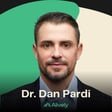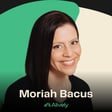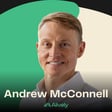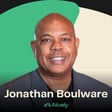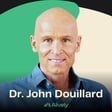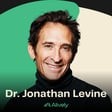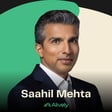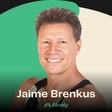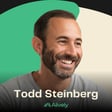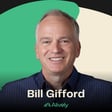
From Prison Cell to Fitness Empire with Dylan Gemelli - E42
What would you do if you were looking at spending more than a decade locked up, away from the world? Would you give up, or use it as an opportunity to turn things around?
In this episode, we hear from a remarkable man who shares the story of his transformation from being inside a prison cell to becoming a respected fitness influencer and health optimization expert. In prison, he found purpose through spiritual development and personal growth, eventually channeling his experience into a mission to enhance longevity and wellness for himself and others. He shares intimate details about his evolution into biohacking, his meticulously designed workout regimen that balances intense training with necessary recovery, and his journey from restrictive eating patterns to a more intuitive approach to nutrition. This story isn't just about physical transformation—it's a testament to reinvention, redemption, and the power of turning life's darkest moments into a platform for helping others thrive.
Dylan Gemelli is a dedicated health optimizer and influencer, known for his work in the fields of steroids, SARMs, and peptides. His journey took a significant turn after serving a two-year sentence of a 15-year prison term during which he strengthened his spiritual connection and rebuilt his life. Dylan's transformational story led him to a path of knowledge acquisition and self-development in health and wellness. He speaks on innovative platforms, including esteemed events like the Mr. Olympia, sharing insights into longevity, quality-of-life enhancement, and the intricate balance of mind and body health. His commitment to impacting others positively positions Dylan as a respected figure in the health optimization community.
“I think I was doing good, but that's certainly not what God put me here to do… coach steroids and SARMs and peptides, right?” - Dylan Gemelli
In this episode you will learn:
- Dylan's transformative journey from facing a 15-year prison sentence to becoming a lively health optimizer and influencer in the field of longevity and wellness.
- The significance of spirituality, close relationships, and finding purpose beyond oneself as pivotal elements in Dylan's personal growth and his approach to healthspan.
- How disciplined routines, encompassing morning walks and regimented fitness, play an essential role in Dylan's daily life and contribute to his physical and mental well-being.
- Insight into Dylan's nutritional evolution, highlighting the shift from restrictive eating habits to a more balanced diet rich in healthy fats, proteins, and essential nutrients.
- The importance of rest and recovery, including the benefits of taking rest days to avoid overtraining and its impact on long-term health and muscle growth.
- Dylan's practical advice for starting a health journey, emphasizing the foundational role of diet education and consistency as a springboard for broader lifestyle changes.
Resources
- Connect with Dylan on Instagram: https://www.instagram.com/dylangemelli
- Find out about Dylan’s offerings and training programs: https://dylangemelli.com/
- Shop all the products Dylan mentions in this episode: https://alively.com/products/dylan-gemelli
This podcast was produced by the team at Zapods Podcast Agency:
https://www.zapods.com
Find the products, practices, and routines discussed on the Alively website:
https://alively.com/

